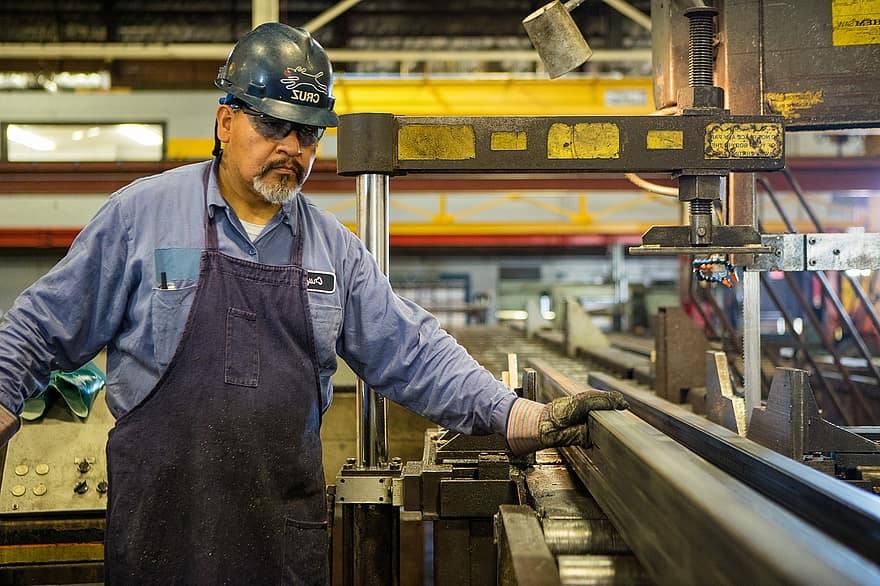Idlers of the World, Unite!

By Patrick Roesle
Contributor
25/1/2022

A spectre haunts North America — the spectre of Antiwork.
In November, Goldman Sachs wrung its hands over “‘the long-run risk’ to labor force participation” augured by abnormally high rates of resignation and lower-than-expected payroll increases, adducing Antiwork as evidence of further troubles ahead for employers. Later in the month, Business Insider published a piece titled “Inside the Rise of Antiwork,” painting a picture of frustration and disillusionment shared by millions of conscientious objectors to the customary arrangement between labor and management. More pieces followed in Rolling Stone, Slate, the Washington Post, Vice, and the Financial Times. During the 11-week strike by unionized workers at four Kellogg’s breakfast cereal plants, the Antiwork community rendered assistance by encouraging boycotts across social media and stymying the company’s attempts to hire scabs. More recently, Antiwork has been asking its subscribers to support striking employees of Kroger’s and Del Monte.
First of all: what is Antiwork?
Antiwork — or, more properly, r/antiwork — is a subreddit (message board) on the website Reddit, founded in 2013. In its earliest days, Antiwork professed its ethos in its name: its few hundred subscribed regulars shared links to the text of Paul Lafargue’s The Right to Be Lazy and Bertrand Russell’s “In Praise of Idleness,” shared videos espousing the possibility of “fully automated luxury communism,” discussed anarchist literature, and waxed theoretical about the dynamics of capitalism eventually necessitating a universal basic income, whereby the self-negated system must then evolve beyond itself, ushering in “a utopia where we’re free to follow our dreams.”
In 2017, the number of Antiwork subscribers ticked up towards 3,000.
By December 2019, Antiwork had about 71,000 subscribers. Over the next year, that number had almost tripled.
At the time of this article’s publication, Antiwork’s subscribing “idlers” number 1.7 million — a figure which doesn’t include the thousands of non-subscribed Reddit users looking in on the conversation. As one might expect, the anarcho-communist philosophy of the board’s fledgling userbase has been somewhat diluted by a massive influx of newcomers that haven’t read Mikhail Bakunin, and are more interested in sharing personal anecdotes and links to stories about lousy jobs, exploitative bosses, and workplace heroes asserting themselves against management.
A survey taken in December 2021 gives some indication of the board’s demographics. Of 12,689 respondents, about 61% were male; about 40% were between 25 and 34 years old, while another 40% of respondents were about evenly divided between 18 and 24 and 35 and 44 years of age. Over two thirds of respondents live in North America, and about 65% reported having full-time jobs. As one might expect, the board leans strongly toward the left: almost half of respondents characterize their political alignment as “soc dem/progressive,” nearly 34% call themselves socialist, and about 28% say they’re anti-capitalist. (The survey allowed respondents to pick more than one choice.) The only group represented less than conservatives (5.5% of respondents) were syndicalists (about 3.4% of respondents) – supporters of a pro-labor, anti-capitalism political movement that peaked before World II and has fallen into obscurity.
These political identifications obscure the real ideological complexion of Antiwork. Generally speaking, its supporters tend to fall under one of three categories.
The orthodox Antiwork crowd subscribes to the convictions of the board’s founders. They want to end “the hierarchical, coercive relationship of employer and employee that exists under capitalism.” The phrase “earn a living” is anathema to them: compulsory labor performed for the sake of enriching somebody else, they argue, shouldn’t be a prerequisite for food and shelter in a post-industrial society where any scarcity of either is mostly artificial. This faction would like to use the sub’s sudden notoriety to inch the Overton window towards the normalization of anarcho-communist discourse in the mainstream and advance serious discussions about automation and universal basic income. Some of its members are concerned that the board is in danger of losing its original identity, but nevertheless hope that its burgeoning popularity will be useful in spreading their message. Though this group has become a minority of the board’s userbase (in the survey, only a little over 10% of respondents specified their political leaning as “anarchist”), most of the moderators belong to it.
The phrase “earn a living” is anathema to orthodox Antiworkers.

In 2013, 8 million 5-cent coins (one for each inhabitant of the country) were dumped in the Government Plaza in Bern, Switzerland in support of the 2016 Swiss referendum for a universal basic income (which was rejected, 77%-23%)
This group is contraposed by a contingent that is not anti-work so much as pro-labor. They want higher wages, a shorter workweek, more accountability from management, universal healthcare, stronger unions, and the other items on the economic left’s wish list. They’re more likely than the orthodox cohort to take a pragmatic view of things. The pro-labor group is interested in making McDonald’s a better place to work, while the anti-work cohort wants to create a world where McDonald’s no longer exists — or is at least completely automated, and sells robot-made Extra Value Meals in exchange for UBI credits.
The third and broadest class of Antiwork poster belongs to the “Great Resignation” tribe: people who are fed up with their jobs and want something better for themselves. You’ll see them expressing their gratitude to Antiwork for inspiring them to stand up to their boss, demand more from a prospective employer, or quit their job to look for the better position they know they deserve (whether “better” is a matter of higher pay, lower stress, or a more reasonable work-life balance). The die-hard idlers will say they’re missing the entire point of Antiwork, but are hopeful of converting at least some of them. In this category we can also include the people just stopping by to vent about an irrational tyrant of a boss, high rents, student loans, and so on.
The arguments (and occasional acrimony) between the anti-work anarchists, pro-labor socialists, and the odd liberal or conservative who just wants an improved (but not reinvented) state of affairs are easy to miss unless you view Antiwork’s postings in chronological order. These conversations usually don’t get enough upvotes to appear when the user’s sort setting is “Hot” or “Top.” The highest-scored posts on a given day are typically red meat for the indignant worker. On January 24, the top five posts on Antiwork were:
1) People castigating a tweet from somebody criticizing demands for $15 minimum wage with the observation that it would put the annual income of minimum wage earner in striking distance of a Texas public-school teacher’s: “a person working a minimum wage job will be making almost the same as a teacher with a college degree. Does this make any sense?” The Antiwork crowd’s refrain: pay teachers more, too. (79,000 upvotes)
2) A thread titled: “For the love of Christ. SAY THE FUCKING COMPANY. THIS IS ALL FOR NOTHING IF WE DON’T KNOW THE OFFENDERS.” The poster urges more people to name the companies that did them dirty. The poster wrote: “If a company treats you wrong, expose them. If they fire you for asking coworkers their pay, expose them. If they make 30billion in sales a year and pay you 11.00 an hour? EXPOSE. THEM…Real change only happens if we can hold those who do wrong accountable.” (64,500 upvotes)
3) A thread titled: “Update on the ThedaCare case: Judge McGinnis has dismissed the temporary injunction. All the employees will be able to report to work at Ascension tomorrow.” This isn’t the place to go into the details of the ThedaCare debacle (a Wisconsin hospital sued to prevent employees from accepting higher-paying jobs at another hospital), but an Antiwork commentor summed it up: “They’ve proven they’d rather pay lawyers than pay workers.” (41,600 upvotes)
4) A (former) store manager of a retail chain store wrote: “I tried fighting for my employees, so corporate fired me.” After corporate introduced harsher attendance policies, he would have been obliged to give one of his best employees a three-day unpaid suspension and a write-up for clocking in 16 seconds late. He was caught adjusting her timecard and was summarily fired that day. “5 years down the drain,” he concluded. (22,600 upvotes)
5) A thread titled: “I’m not worth a raise? You’re not worth my time.” (17,600 upvotes)
What’s so special about this? Complaints about jobs and bosses are as old as civilization — dominus est non gratus anus rodentum (“the boss isn’t worth a rat’s ass”), as a disgruntled Roman reportedly etched into a wall. Why should Goldman Sachs lose any sleep over this? It’s not as though these conversations aren’t already being had elsewhere: a lot of Antiwork’s content consists of embedded tweets and links to published articles, after all.
Business Insider, Rolling Stone, and Vice all err in referring to Antiwork as a movement. This is premature: its “members” have profound ideological differences, no strategy, and no concrete goals beyond abolishing obligatory wage labor and/or securing higher wages and better benefits for laborers (depending on whom you ask). A movement needs leaders, objectives, and a plan of action. Antiwork has none of these — but this isn’t necessarily a failing.
Antiwork is not a movement. As things stand, it is simply a popular forum — and a mood. Much like the tang ping youths in China who deliberately embrace underperformance and the simple life, the malcontents posting on Antiwork are involved in a generational reaction against economic and cultural institutions which they perceive as a malignant scam. Antiwork represents a howl of rage against the status quo. That’s why the bourgeois economists and media outlets have taken notice, and why it worries them.

Let’s look at some numbers. In 2008, at the nadir of the Great Recession, corporate profits in the United States amounted to nearly $1.3 trillion — about $300 billion lower than the decade’s high-water mark in 2006. By 2019, annual corporate profits had risen to about $2.4 trillion, a robust recovery by any measure. Throughout the pandemic, “record profits” became a common news headline. During the third quarter of 2021, according to Bloomberg, “after-tax corporate profits from current production amounted to 11% of gross domestic product,” an all-time high.
Bloomberg’s columnist elaborated:
How high did they get before that? In the quarterly data, which go back to 1947, after-tax profits never topped 9% of GDP before 2010. In annual data they did reach 9.1% in 1929. That ill-starred precedent has at times raised concerns that high profit shares are unsustainable, a sign of an economy tilted too far in favor of corporations and their shareholders.
We can find other signs of the tilt pretty much anywhere we care to look beyond the executive suite. A bleak 2020 report from the Economic Policy Institute shows how little the corporate windfall has trickled down to workers, particularly those at the bottom end of the economic ladder:
- Over the last 40 years, wages for the vast majority of the US workforce have grown slower than their potential and much slower than for those at the top.
- Without the wage growth spurred by exceptionally low unemployment in the late 1990s and the last five years, wages for most workers would be lower today (in real terms) than they were 40 years ago.
- Even with recent wage growth, the median wage — the wage at the center of the wage distribution — is only $19.33 an hour, which translates into about $40,000 for a full-time, full-year worker […]
- From 2018 to 2019, the fastest growth continued at the top (4.5% at the 95th percentile), while median wages grew 1.0% over the year and wages at the bottom fell (-0.7% at the 10th percentile).
Service industry workers who have seen wage increases over the last few years are currently seeing those gains evaporate due to inflation. (A common Antiwork refrain: if your employer isn’t increasing your wage to match inflation, you’re getting a pay cut.) We could pore over reams of economic data for as long as we’d like, and the picture wouldn’t improve. But the numbers in and of themselves miss something.
We might also review the United States’ healthcare system — the most expensive and inefficient of the developed world. If you’re reading this from a country where the phrase “high-deductible plan” doesn’t turn your knuckles white, I envy you. Imagine paying a portion of your wages every pay period to a for-profit insurer that won’t contribute a cent to your $4,990 medical bill when your plan’s deductible is $5,000. If you’re in the sort of job where you stock shelves, ship packages, work a cash register, wait tables, etc., this is the kind of “coverage” you can expect.
We can also talk about how the United States is the only developed nation that does not guarantee paid sick leave, nor paid leave to new parents. The Economic Policy Institute reported in 2021 that only about half of workers at the bottom 25% of the wage scale have access to paid sick leave. On the bottom decile of the wage scale, just a third of ailing workers can stay home from work without worrying about the impact on their finances.
Paid vacations are likewise offered at the discretion of individual employers. According to a 2021 report from the US Bureau of Labor Statistics, less than half of workers employed in the leisure and hospitality sector (roughly 10% of the American workforce) receive paid vacations. Surveys conducted by the job-hunting website Indeed don’t produce completely trustworthy data, but they’re more precise than the Bureau of Labor Statistics with regard to retail workers at large firms: 49% percent of about 12,000 current and former Target employees surveyed by Indeed reported getting/using no vacation days per year; 33% (a plurality) of about 100,000 Walmart workers, 58% of about 1,500 Gap workers, 31% (a plurality) of 11,000 CVS workers, and 58% of Dollar General workers said the same. Apart from Gap workers, a plurality of each group of respondents answered “strongly disagree” to the statement “It’s easy to request PTO at [company].”
All of these firms have paid vacation policies, which factor into the Bureau of Labor Statistics’ rosy estimate that 79% of all workers in the private sector receive paid leave. But if you’re an American who’s ever worked at a cash wrap — or in a cubicle, for that matter — you probably have an inkling of the subtle and not-so-subtle ways employers can discourage or prevent you from using your allotted PTO. The official graphs and figures tend to omit this sort of thing. For a more complete picture of the American workplace, you can supplement the statistics by browsing Antiwork for a while. Anecdotes do not equal data — except, perhaps, when the anecdotes number in the thousands.
One poster, a retail worker, reported being routinely made to work through her “mandatory” unpaid 30-minute break period.
Somebody recounted their recent visit to the store Dollar General. An employee was crying at the cash register. She’d just gotten word that her father died, and had to work the rest of her shift because she couldn’t find anybody to cover it for her.
One user titled their post: “My office has lost 60% of our staff since the start of the pandemic. I am doing the work of 3 people and I was here for 14 hours yesterday. Got this email from our area manager this morning. Happy Thanksgiving!” The email reads: “Do me a favor, don’t ever tell me you are to [sic] busy because I don’t believe it. It is a lame excuse and nobody that is successful ever says that. Work smarter or longer or both.”
“Greedy Bastards aren’t getting my tips!” reads a post title. The author works a job where she often receives cash tips from customers while working at the cash register. Her employers have instructed her not to pocket or share the tips, but to put the money in the till. It ultimately ends up in the deposit bag, as extra income for the business. Another poster who’d been in a similar situation related how her bosses, when confronted about this, offered to “use” the stolen tips to buy staffers “snacks and gift cards” when the holidays came around.
A post title: “Girlfriends [sic] boss is making her work after taking a positive rapid test for covid.” Some hours later, he shared an update: “SHE LITERALLY GOT SICK IN THE BATHROOM PEOPLE.” Posts about people being pressured or compelled to come into work despite a COVID diagnosis (especially in the healthcare field) practically constitute their own genre on Antiwork.

Surely some of the horror stories on Antiwork are fabricated. In a thread about the issue, one community member conceded that some posts are indeed too fantastic to be true. “On the other hand,” she wrote, “when I was 17 [and working as a restaurant hostess] I was forced to sleep in dry storage 2 nights in a row so that I could work the entire holiday weekend open to close.”
I’m inclined to trust most Antiwork tales of atrocity on the basis of personal experience. I could tell you about my last job at a small business in Philadelphia. About how we’d get our weekly schedule only a day or two in advance. About the manager who’d say “see you in 10 minutes” when employees left to take their 15-minute breaks. About my coworker who was suspiciously demoted after calling in sick two days in a row (and failing to find somebody willing to sacrifice their day off to cover for him). About how I was implicitly expected to do administrative work at home, unpaid. About the weekly struggle sessions where the owners and managers would sit down with all the supervisors on Tuesday afternoon (if Tuesday was somebody’s day off, too bad; they still had to come in), and spend two hours making each of them own up to their faults from the preceding week. The supervisors earned $13 an hour (plus tips), received no benefits, and got no paid time off.
Or: I could talk about my time working for the national bookstore chain Borders, getting hired just before the company imploded on itself. For three years we watched as wages were frozen, perks revoked, and supervisory positions eliminated, while the executives at corporate routinely gave themselves bonuses. I worked in the café, and was warned that if I did anything with expired pastries other than toss them in the garbage, I’d be fired. When the company went bankrupt, the same executives who’d overseen its demise awarded themselves six-figure payouts. The people who worked in their stores were left to apply for unemployment benefits.
For three years we watched as wages were frozen, perks revoked, and supervisory positions eliminated, while the executives at corporate routinely gave themselves bonuses.
In his 1937 book The Importance of Living, author, translator, and inventor Lin Yutang mused on the differences between China and the United States. The American emphasis on efficiency fascinated him: “the Chinese as a nation are more philosophic than efficient,” he observed, “and if that were otherwise, no nation could have survived the high blood pressure of an efficient life for four thousand years. Four thousand years of efficient living would ruin any nation.”
Employers’ mania for efficiency is a root cause of so much of the indignation crackling on Antiwork. Motivated by falling rates of profit, the shareholder model, technocratic management, and the pressure exerted on small businesses by big competitors with deep coffers, firms relentlessly seek new ways to wring more value out of employees’ labor time, rationalizing the workplace and its policies with the detached acumen of engineers optimizing an engine. Hundreds, thousands of the personal stories shared on Antiwork can be summed up as: “my job/my boss/the company treats us like machines.” The young woman who wasn’t allowed to leave work after hearing her father died, the employee overwhelmed from doing the work of three people, and the girl who was forced to continue working after testing positive for COVID were given all the consideration one typically shows a jammed printer. When a woman risks having her hours reduced indefinitely if she doesn’t promptly return to work after giving birth or tending to a sick family member, she’s being treated like a material asset — not as a person. Employers who expect workers to answer emails and take calls during their off-hours, who ask them to accept schedule changes at the drop of a hat, who retaliate against people for calling in sick, who demand staffers travel in dangerous weather, or who expect an employee to clock out and work unpaid if they’re at the threshold of overtime pay — these employers have their people confused with appliances. None of this is unusual in the American workplace. These policies are practiced and enforced because it’s cost-effective to do so. Because it’s efficient.

Oddly enough, the conversations on Antiwork sometimes make me think of Confucius. At a glance, Confucius’ ideal social order seems to conform to the sensibilities of American employers. He prescribes a rationalized hierarchy of relations between fathers and children, and rulers and subjects, in which it is the obligation of those lower on the totem pole to show due deference and loyalty to their betters.
But Confucius’ emphasis on the respect and loyalty owed to those who command comes with a corresponding duty of noblesse oblige. The privilege of presiding over a nation — or an organization — must be earned with impeccable moral conduct and benevolence. An unprincipled, rapacious, or cruel leader (whether of a nation or a firm) engenders the conditions of his ruin by losing the trust and arousing the animosity of the people beneath him. The sage’s feelings about a people’s right to revolt are somewhat ambiguous — he speaks of rebellion more as a regrettable consequence of misrule than as a legitimate political option — but he is clear that people who serve bad leaders should resign and go elsewhere. (This would make Confucius one of the earliest recorded advocates of workplace walkouts.) A ruler justifies his position by taking responsibility for the welfare of his people.
This flouting of all notions of responsibility and reciprocity — that’s the reason for so much of the anger that finds expression and an audience on Antiwork. These people aren’t just blowing off steam because their boss is a stickler for details, or because their supervisor wouldn’t see things their way in an argument. Antiwork is a mood, and that mood is moral outrage. It’s about the demand for devotion and commitment from people (or an abstract concept of a person, reified in the corporate entity) who have no intention of returning your loyalty, and make no secret that they consider you disposable. It’s about knowing that the political system has been hijacked to serve the interests of the rentiers who are callously taking advantage of you every time you clock in. It’s about living paycheck to paycheck with a full-time job while management can afford to buy houses, send their kids to private schools, take overseas vacations, and plan to retire instead of just working until they die — all while treating you like dirt.
“Unless social inequalities have a true and moral basis…government of the people is an impossibility,” says the Confucius’ Doctrine of the Mean. It later reiterates: “If the people in inferior positions do not have confidence in those above them, government of the people is an impossibility.”
For all it’s done to capture the zeitgeist, Antiwork is not an organized movement. But does it have the potential to become one? Should it become one?
As somebody still smarting a bit from Occupy Wall Street’s failure, I’m glad to see that Antiwork has so far not taken any steps towards “going public.” As things currently stand, it would fail. The ideological divide between its utopian and pragmatist blocs (which can be hard to see beneath all the memes and personal story posts) could very well lead to a schism. The board’s “official” anarcho-communist ideology is rather outré by the standards of the American mainstream; the venal jabberers of cable news would have a field day interviewing any of Antiwork’s most probable spokespeople. Moreover, the community’s animus towards social conservatives (also easy to overlook if one doesn’t comb through threads) would alienate more of the working class than it probably realizes.
If Antiwork is to be a force for change, probably the best thing it can do is stay the course. It doesn’t need to become an activist brand, at least not right now, maybe not ever. In its doomed, quixotic crusade for economic justice, Occupy led its believers against the fortified and mostly faceless malefactors of finance capital. The enthusiastic millennials who threw their support behind Bernie Sanders’ 2016 and 2020 presidential campaigns pinned their populist hopes on a single man who was just as remote from their lives as the vampire squid financiers who created a lost generation and made off with billions of dollars. But Antiwork’s virtue is its immediacy. Few people directly interact with Wall Street firms or politicians. Way more people have jobs. It’s easier to make an employer or a recruiter sweat than to threaten a distant billionaire; coordinating with one’s coworkers against management is more likely to yield immediate results than voting for a maverick politician in a national election and hoping for a good outcome. (Provided, of course, that one goes about organizing their workplace the right way, and Antiwork is full of helpful information about how and how not to confront one’s bosses.)
As things stand, Antiwork is most potentially useful as a vehicle of stochastic resistance, a public record and a nexus of workers’ exasperation with a political system in thrall to corporate patrons, and with a business milieu that has been generating record profits while squeezing them harder and harder. It’s an enormous digital wall on which DOMINUS EST NON GRATUS ANUS RODENTUM is painted in towering letters, rewritten, and undersigned a hundred thousandfold — a message that doesn’t necessarily incite a revolution, but can effectuate the transformations in attitudes and behavior that compel history to lope a step forward. To the underpaid and alienated worker, a daily glance at Antiwork’s top posts is a reminder that they’re not alone, that power exists in numbers, and that a boss can only tyrannize them if they consent to it. The board encourages people not to settle for less, not to trust corporate employers to deal with them in good faith, and to communicate and organize with other workers if they’re serious about change. In other words, Antiwork is helping to foster class consciousness, something which both of America’s political parties have been doing their damnedest to suppress (absent their anodyne, obligatory rhetoric about the importance of a “strong middle class”).
Ever since the Great Recession, the United States’ economic and political elite have been playing whack-a-mole with economic justice movements, either stymying them (in the case of Sanders’ presidential campaigns), letting them run their course and implode on themselves (Occupy), or co-opting and defanging them (the Democratic Socialists of America). No honest effort has been made to address the runaway economic divide, stagnant or shrinking wages, systemic corporate malfeasance, the narrowing of the middle class, or the rise of the precariat. Whatever becomes of Antiwork and its ethos, the outrage that inspired it has been boiling for too long to be assuaged by pizza parties, gift cards, and platitudes.
